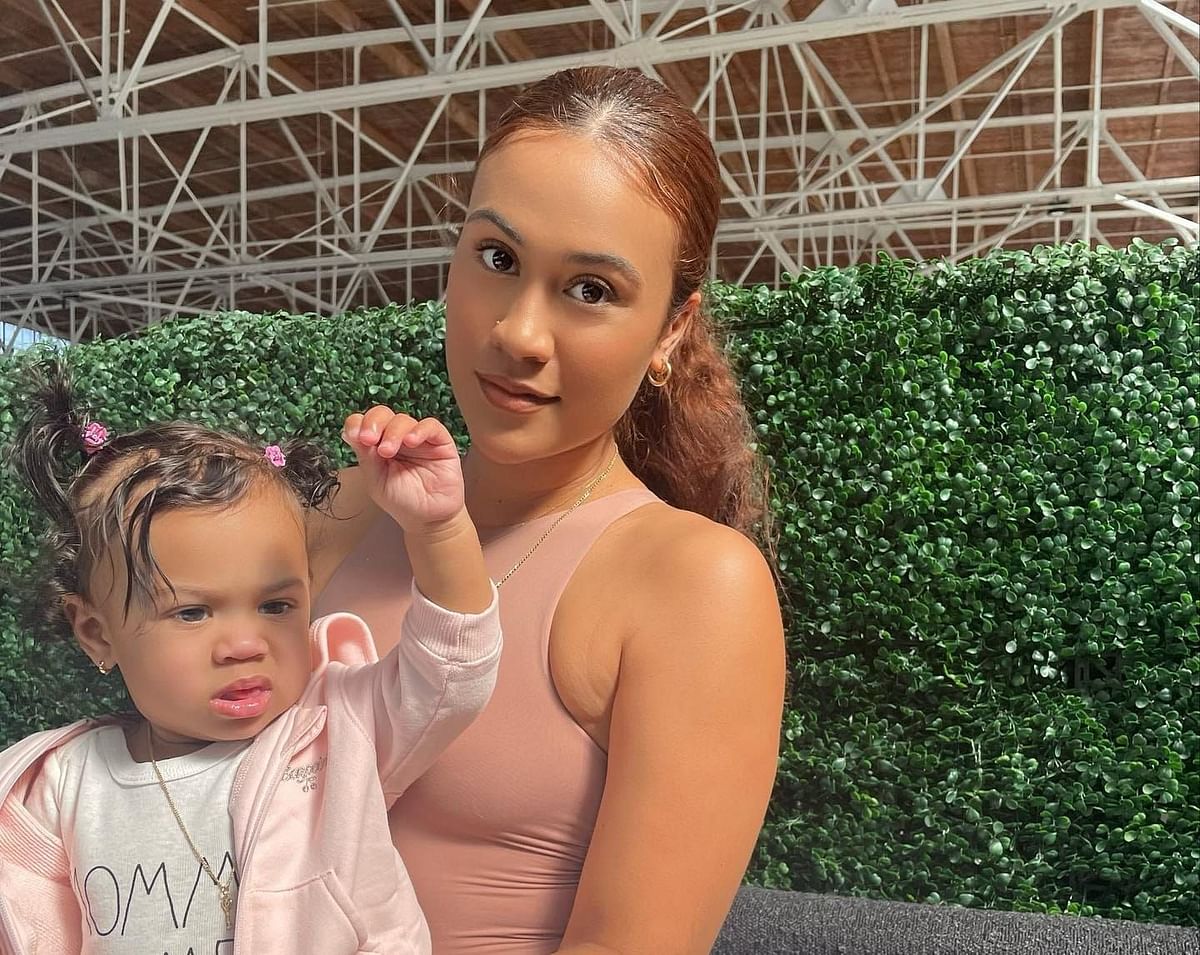Unpacking The Question: Does Chris Brown Have Full Custody Of His Kids?
When we ask a question like, "Does Chris Brown have full custody of his kids?", we're really doing more than just seeking an answer about a public figure's personal life. It's a question that, in a way, brings to light some rather interesting points about how we use language, especially those small but mighty words that help us form our thoughts into clear queries. You see, the way we phrase things can sometimes be just as important as the information we're trying to get. It’s a common thing, isn't it, to wonder about the private lives of people in the public eye? We often find ourselves asking questions that start with words like 'do' or 'does', and honestly, getting those right is a big part of making sure our questions are understood.
So, today, we're due to explain the difference between do and does, particularly as it applies to questions that pop up in everyday conversation, like the one about Chris Brown. It's not just about getting the facts, but about appreciating the structure of the question itself. We'll learn what makes 'do' an irregular verb and how and when to use each one, which is pretty useful, you know, for anyone trying to get their English just right.
It's interesting, too, how often do and does are two words that are often used interchangeably, but they have different meanings and uses. Understanding when to use "do" and "does" is key for speaking and writing English correctly, and that applies whether you're chatting with a friend or trying to figure out details about someone else's life. This article, in some respects, will help you master the use of do or does in English grammar, offering practical tips for choosing between these essential words and helping you upgrade your communication skills now!
Table of Contents
- The Grammar Behind the Question: "Does Chris Brown..."
- What Makes "Do" an Irregular Verb?
- The He/She/It Form of "Do"
- Do vs. Does: Understanding the Difference
- Short Answers with "Do" and "Does"
- Why Does It Matter in a Celebrity Context?
- Frequently Asked Questions About "Do" and "Does"
The Grammar Behind the Question: "Does Chris Brown..."
When you hear or read the question, "Does Chris Brown have full custody of his kids?", it's a very common way to ask about someone's situation. But have you ever paused to consider why we use 'does' there and not 'do'? It's a pretty straightforward rule, actually, once you get the hang of it. The word 'does' here acts as an auxiliary verb, helping the main verb 'have' to form a question. This particular structure is used quite a lot in English, you know, for questions in the present simple tense.
The choice between 'do' and 'does' basically comes down to the subject of your sentence. In this specific question, "Chris Brown" is the subject. Since "Chris Brown" can be replaced by the pronoun "he," we use 'does'. It's the third person singular in the present tense of 'do', which is a pretty important detail for getting your grammar spot on. We'll explain the difference in this article, so stick with us!
It's like, if you were asking about yourself, you'd say, "Do I have...?" or about a group, "Do they have...?" But for a single person, like "he" or "she" or "it," it's always "does." This rule is quite consistent, making it easier to remember once you grasp the basics. It's just a little thing that makes a big difference in how clear your questions are.
What Makes "Do" an Irregular Verb?
You might be wondering, what exactly makes 'do' an irregular verb? Well, in English, regular verbs typically form their past tense and past participle by adding '-ed' to the base form, like 'walk' becoming 'walked'. But 'do' doesn't follow that neat pattern, does it? Instead of 'do-ed', we have 'did' for the past tense and 'done' for the past participle. This is what makes it irregular, and it's something you just kind of have to learn by heart, you know, rather than following a simple rule.
This irregularity means that its forms in different tenses and with different subjects can be a bit surprising if you're expecting a regular pattern. For the present simple tense, which is what we're looking at with "Does Chris Brown have full custody of his kids?", the forms are 'do' and 'does'. It's pretty interesting, actually, how these little quirks in language shape the way we speak and write every single day. Understanding these unique aspects of verbs like 'do' is a key part of really getting a feel for English grammar, and it's something that can genuinely help you improve your communication skills.
So, while many verbs play by the rules, 'do' is a bit of a rebel, and that's perfectly fine. It just means we need to pay a little extra attention to its specific forms. Knowing that it's irregular helps explain why 'does' is the form we use for 'he', 'she', and 'it' in the present tense, rather than some other variation. It’s almost like it has its own special set of rules, which, in some respects, it does.
The He/She/It Form of "Do"
Let's talk a bit more about the he/she/it form of 'do', which is, of course, 'does'. This particular form is used when your subject is a singular noun or one of those third-person singular pronouns. For example, if you're talking about a person, an animal, or a thing, and there's only one of them, you'll use 'does'. It's a pretty clear rule, and one that's fundamental to forming correct sentences in the present simple tense.
Think about it this way: if you're asking about "the dog," you'd say, "Does the dog need a walk?" Or if you're talking about "the car," it's "Does the car start?" In our example, "Chris Brown" fits into that 'he' category, which is why "Does Chris Brown..." is the correct way to start that query. This is the present simple of do, used with he/she/it, and it’s a rule that, frankly, is quite consistent.
This form, 'does', is also really important for making negative statements in the present simple. For instance, you wouldn't say "He do not like pizza"; you'd say "He does not like pizza." So, it's not just for questions, but for negatives too. This shows just how versatile and important this little word 'does' really is in English grammar. It's almost like a little helper word that points to the subject, you know, making sure everything lines up properly.
Do vs. Does: Understanding the Difference
So, what's the difference between do vs. does, really? As we've touched upon, do and does are two words that are often used interchangeably by mistake, but they have different meanings and uses. The main distinction, as we've seen, hinges on the subject of your sentence. It's a fairly simple concept once it clicks, but it's a common area where people sometimes get a little mixed up.
You use 'do' with the pronouns I, you, we, and they. For example, "I do like pizza" or "We do enjoy going to the park." It's for when the subject is plural or when it's 'I' or 'you'. It’s pretty straightforward, actually, when you look at it that way. This covers a good chunk of your everyday conversations, so getting 'do' right is, you know, quite essential.
On the other hand, 'does' is specifically for the third person singular subjects: he, she, or it. So, "She does her homework every evening," or "It does seem a bit cold today." This is why, when we ask about Chris Brown, who is a 'he', we use 'does'. Both do and does are present tense forms of the verb 'do', but which is the correct form to use depends on the subject of your sentence. In this article, we’ll explain the difference, and hopefully, make it super clear for you. It's really about pairing the right verb form with the right subject, a bit like matching socks, you know?
To put it simply, if you can replace your subject with 'he', 'she', or 'it', then 'does' is your word. Otherwise, it's 'do'. This rule helps maintain clarity and correctness in your sentences, making sure your meaning is always understood. It's a fundamental piece of English grammar, and mastering it will truly help you upgrade your communication skills now!
Short Answers with "Do" and "Does"
When questions use 'do' or 'does', it is possible to give short answers to direct questions as follows. This is a pretty neat feature of English, actually, allowing for quick and concise replies without having to repeat the whole question. It makes conversations flow a bit more naturally, you know, and it’s something we do all the time without even thinking about it.
For instance, if someone asks, "Do you like coffee?" a short answer would be, "Yes, I do," or "No, I don't." You don't need to say, "Yes, I like coffee." It's efficient, and it’s very common in spoken English. This kind of brevity is quite useful, especially when you're just trying to confirm something quickly. It’s almost like a linguistic shortcut, in a way.
Similarly, for questions using 'does', like our main example, "Does Chris Brown have full custody of his kids?", a short answer would follow the same pattern. If the

How Many Kids Does Chris Brown Have? - Classified Mom

Chris Brown Is the Adoring Father to Three Wonderful Kids

How many kids does Chris Brown have?